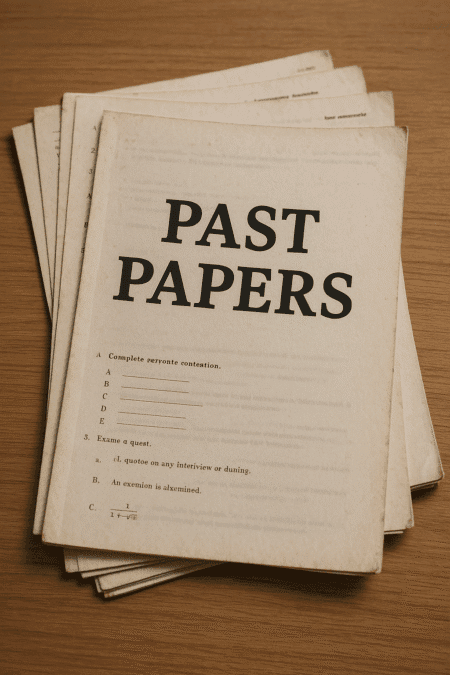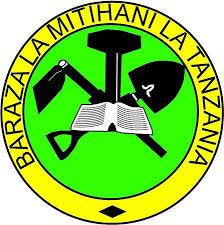Unlocking Exam Success: Utilizing Past Papers Effectively in Tanzania
Unlocking Exam Success: Utilizing Past Papers Effectively in Tanzania
Preparing for national examinations in Tanzania requires diligent effort and strategic planning. One highly effective tool often overlooked is the strategic use of past examination papers. These papers, readily available from various sources, offer invaluable insights into the examination format, question types, and the specific knowledge and skills assessed. Therefore, incorporating past papers into your study routine can significantly enhance your performance and improve your final grades.
Firstly, it’s crucial to understand the purpose of using past papers. They are not merely practice tests; they are diagnostic tools. By working through past papers, you can identify your strengths and weaknesses in specific subjects. For instance, you might discover you excel in essay-based questions but struggle with problem-solving in mathematics. This self-assessment is the foundation for targeted revision. Instead of reviewing the entire syllabus indiscriminately, you can focus your efforts on areas where you need improvement, maximizing your study time and efficiency.
Next, consider the process of engaging with past papers. Begin by simulating the actual examination environment. Find a quiet space, set a timer, and attempt the paper under timed conditions. This replicates the pressure of the real examination, allowing you to practice your time management skills and identify any areas where you tend to rush or spend too much time on a single question. Furthermore, this approach helps you become accustomed to the pace required for successful completion of the examination.
Following the timed attempt, meticulously review your answers. Compare your responses to the marking scheme, paying close attention to the areas where you lost marks. Don’t simply focus on the final score; analyze the reasons behind any incorrect answers. Did you misunderstand the question? Were you lacking specific knowledge? Did you make a careless mistake? Understanding the root cause of your errors is crucial for effective learning and improvement. This detailed analysis allows you to pinpoint knowledge gaps and address them proactively.
Moreover, the use of past papers extends beyond individual subject preparation. They can also be used to develop effective examination techniques. By analyzing the structure of past papers, you can learn to identify keywords, understand the command words used in questions, and develop strategies for answering different question types. For example, learning to differentiate between “explain,” “analyze,” and “evaluate” will significantly improve the quality and depth of your answers. This understanding of examination technique is as important as subject-specific knowledge.
In addition to individual study, past papers can be a valuable tool for group study. Discussing answers and different approaches with peers can broaden your understanding and expose you to alternative perspectives. This collaborative learning environment can be particularly beneficial for clarifying complex concepts and reinforcing your understanding. Furthermore, explaining your reasoning to others can solidify your own grasp of the subject matter.
Finally, remember that consistent practice is key. Don’t just work through one or two past papers; aim for a regular and consistent approach. The more past papers you complete and analyze, the more familiar you will become with the examination format and the better equipped you will be to handle the challenges of the actual examination. This consistent practice, coupled with targeted revision based on your self-assessment, will significantly improve your chances of achieving higher grades in your national examinations. Therefore, the strategic and consistent use of past papers is an indispensable tool for Tanzanian students aiming for examination success.
Step-by-Step: Conquering Exams with Past Papers in the Tanzanian Education System
Step-by-Step Guide: Using Past Papers to Improve Grades in Tanzania
The Tanzanian education system places significant emphasis on examinations, making effective exam preparation crucial for academic success. Past papers, readily available for most subjects and examination levels, offer an invaluable resource for students aiming to improve their grades. This guide provides a step-by-step approach to utilizing past papers effectively, maximizing their potential for enhanced performance.
Firstly, it’s essential to acquire a comprehensive collection of past papers. These can often be obtained from schools, libraries, or online educational resources. Ensure you have papers covering a sufficient number of years, ideally spanning at least five years to gain a broad understanding of the examination format and recurring themes. Furthermore, pay close attention to the specific syllabus your examination board uses, as this will ensure the papers you select are relevant to your current curriculum. This initial step lays the groundwork for a successful study strategy.
Once you have gathered your past papers, the next step involves a thorough review of the marking schemes. Understanding how marks are allocated is crucial. This allows you to identify areas where you consistently lose marks and to pinpoint specific knowledge gaps. By analyzing the marking scheme, you can develop a targeted approach to your revision, focusing on the areas where you need the most improvement. This targeted approach is far more efficient than simply rereading your notes without a clear understanding of what examiners are looking for.
Following this, begin practicing with the past papers themselves. Start by simulating exam conditions as closely as possible. Allocate yourself the appropriate time limit and work through the papers without referring to your notes. This will not only test your knowledge but also help you manage your time effectively during the actual examination. This practice is vital for building confidence and identifying areas where you struggle under pressure.
After completing a past paper, meticulously mark your work using the corresponding marking scheme. Don’t just focus on the final score; instead, analyze your mistakes in detail. Identify the specific concepts you misunderstood or the types of questions you found challenging. This self-assessment is critical for identifying weaknesses and tailoring your revision accordingly. Furthermore, note down any recurring errors or patterns in your mistakes, as this will highlight areas requiring focused attention.
Subsequently, revise the topics where you encountered difficulties. Don’t simply reread your notes; actively engage with the material. Use different learning techniques, such as creating flashcards, summarizing key concepts, or teaching the material to someone else. This active recall strengthens your understanding and improves retention. Remember, the goal is not just to memorize information but to truly understand the underlying principles.
Finally, repeat this process with several past papers. Each paper provides an opportunity for further practice and refinement. As you progress, you should notice a gradual improvement in your performance and a growing confidence in your ability to tackle the examination. Consistent practice and self-assessment are key to success. By diligently following these steps, students in Tanzania can effectively leverage past papers to significantly improve their grades and achieve their academic goals. Remember, consistent effort and a strategic approach are the cornerstones of exam success.
Mastering Past Papers: A Step-by-Step Guide for Tanzanian Students
Mastering Past Papers: A Step-by-Step Guide for Tanzanian Students
The Tanzanian education system places significant emphasis on examinations, making effective exam preparation crucial for academic success. Past papers, therefore, represent an invaluable resource for students aiming to improve their grades. However, simply reviewing past papers isn’t enough; a strategic approach is necessary to maximize their benefits. This guide outlines a step-by-step process to effectively utilize past papers and enhance your academic performance.
Firstly, it’s essential to gather a comprehensive collection of past papers relevant to your specific subjects and examination board. This might involve accessing resources from your school, libraries, or online platforms. Ensure you have papers from several years, allowing you to identify recurring themes and question patterns. Furthermore, pay close attention to the marking schemes; understanding how marks are allocated is as crucial as answering the questions themselves. This understanding will inform your approach to answering questions, highlighting the key elements examiners look for.
Once you have your resources assembled, begin by familiarizing yourself with the exam format. This involves understanding the types of questions asked, the time allocation for each section, and the overall structure of the paper. This initial overview will help you develop a strategic approach to tackling the exam itself. For instance, you might identify sections that consistently require more time or those that carry more weight in terms of marks. This awareness will allow you to allocate your time effectively during the actual examination.
Next, begin practicing with the past papers. Start by attempting a full paper under timed conditions, simulating the actual exam environment as closely as possible. This is crucial for developing your time management skills and identifying areas where you struggle under pressure. After completing the paper, meticulously mark your work using the provided marking scheme. Don’t just focus on the final score; analyze your mistakes to understand the underlying reasons for them. Were you lacking in subject knowledge, or did you struggle with applying that knowledge to the specific questions?
Following this self-assessment, it’s vital to address your weaknesses. If you consistently struggle with a particular topic, revisit your notes and textbooks, focusing on that specific area. Seek clarification from your teachers or tutors if necessary. Remember, the goal isn’t just to get the right answers; it’s to understand the underlying concepts and principles. This deeper understanding will not only improve your performance on past papers but also enhance your overall grasp of the subject matter.
Finally, after addressing your weaknesses, revisit the past papers. This time, focus on the areas where you previously struggled. Attempt similar questions, paying close attention to the techniques and approaches you learned during your review. This iterative process of practice, self-assessment, and targeted revision is key to maximizing the benefits of using past papers. By consistently applying this method, you will not only improve your exam technique but also solidify your understanding of the subject matter, leading to improved grades and increased confidence in your abilities. Remember, consistent effort and a strategic approach are the keys to success.



